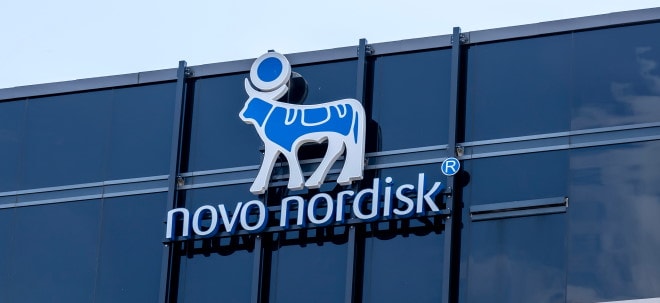The Seller's Guide: How to Maximize Valuation When Selling Your Med Spa
TUSK Practice Sales explains how to turn today's demand into a high-confidence medical spa practice sale.
CHARLOTTE, N.C., Sept. 25, 2025 /PRNewswire/ -- For medical spa owners navigating an evolving landscape with growing interest from private equity, understanding how that interest will impact your business is essential. TUSK Practice Sales has compiled guidance on how to sell your medical spa, who will buy it, how owners can benefit, and how to prepare a medical spa to sell at top dollar with strong deal terms.
Why Buyers Want to Purchase Medical Spas
Private equity is targeting medical aesthetics because the model combines recurring, self-pay revenue with clear unit economics and a fragmented market that rewards disciplined roll-ups. Specifically focusing on clinics that run on a documented playbook, scale efficiently across locations, and withstand diligence. That combination has produced repeatable results in other healthcare services, and established investors are now applying the same strategy to medical spas.
How consolidation typically works in medical aesthetics (the playbook owners should expect):
- Form the platform: A PE firm acquires a flagship clinic or group, often around $1M+ EBITDA, to serve as the operating hub with proven leadership, systems, and brand credibility.
- Add-on acquisitions: The platform buys well-run clinics that fit its geographic map and service mix, then integrates them into shared systems (EMR/CRM, procurement, marketing, training) to lift margins and speed growth.
- Standardize and expand: Pricing, memberships, protocols, and reporting are unified so performance becomes predictable; selective de novo openings add capacity in high-demand trade areas.
- Recapitalization: After the platform reaches scale and consistency, the owner sells a controlling stake to a larger investor at a higher multiple. Sellers and management often realize value at recap while retaining equity for the next stage of growth. This is the core engine of PE value creation.
"TUSK has been advising in healthcare M&A for more than a decade, and we've watched many of the same private equity groups succeed in dental, dermatology, and other verticals before turning to medical aesthetics," said Kevin Cumbus, President & Founder of TUSK Practice Sales. "That's good news for medical spa owners. We're regularly in market with platforms that already own dental or dermatology assets and are now allocating capital to med spas. Our job is to put you in front of the right buyers and convert that interest into a premium price, clean terms, and a partner fit you want."
The Most Common Mistake Made When Selling A Med Spa
The category is young, and consultants are entering as fast as owners are opening. If your advisory bench is misaligned or inexperienced, you can end up with a fragile business that struggles to sustain margins and therefore doesn't have the opportunity to maximize its exit. In TUSK's article Built on Bad Advice: Why Many Med Spas Are Failing, the firm outlines how poor guidance erodes value when it comes time to sell your medical spa.
"Begin with the end in mind and build a business that is built to sell," said Ryan Mingus, Managing Director and Partner at TUSK. "That means getting the operational, financial, and legal structure right early so you can grow profitably and be buyer-ready."
"Your medical spa is likely your life's work. Choose advisors who protect your downside and maximize your upside," Ryan Mingus added.
Who Will Buy Your Med Spa? What Do Buyers Look For?
Private equity has moved into medical aesthetics for clear reasons: strong consumer demand, largely self-pay revenue, recurring services such as memberships, a fragmented market with room to consolidate, and models that can be replicated across locations. For medical spa owners, that means more pathways to exit and more buyer types to evaluate.
1) Who will buy your medical spa?
Private equity buyers typically fall into two groups:
- Platform buyer (PE building a new brand): This is the first investment that becomes the platform. Buyers look for a flagship practice or group that can be scaled to new markets.
- MSO add-on (PE-backed platform acquiring): An established platform that grows by buying strong clinics and adding selective de novos.
2) What do buyers look for in your medical spa?
Private Equity Platform buyer:
- Seeks a well-established, high-performing single location or, more often, a multi-location group.
- Typically focuses on larger businesses, often around $1M+ in EBITDA. (EBITDA is earnings before interest, taxes, depreciation, and amortization. It is a common measure of operating profit used in valuations.)
- Looks for repeatable systems, a scalable patient base, and a footprint that can support additional locations and acquisitions.
- Expects the owner to remain and lead growth, often for five or more years, with an equity rollover and incentives tied to expansion.
MSO add-on buyer:
- Shares many of the same preferences but is typically more flexible on post-sale roles if the med spa owner is not the key clinician. Many owners step back after three to four years when the team and systems are in place.
- Add-on transactions are still based on a multiple of EBITDA, but MSOs often screen for $2M+ in revenue and multi-provider depth. For tenured clinics with multiple providers, $300–400K+ EBITDA is a helpful indicator.
- Cultural fit and workforce stability matter. The space sees turnover; buyers want to see that your team sticks and your operating rhythm is steady.
3) Medical Spa Valuations
The medical spa industry is still early in its consolidation cycle. Clinics that meet the criteria above are scarce, which is why well-run businesses attract significant buyer interest.
- Platform acquisitions often trade at higher multiples because the buyer is purchasing leadership depth, systems that scale, and lower execution risk. The size of these businesses must be large enough, therefore commanding more compensation.
- MSO add-ons are typically priced more conservatively because the platform's infrastructure and integration playbook create much of the value after close. In today's market, many well-run add-ons trade around 6–8x+ EBITDA, with higher outcomes for exceptional fit and scale.
"Medical spa owners have more buyer options than ever. Platform PE groups, MSOs, and regional strategics all value different things," said Kevin Cumbus. "The best way to see every option and create real leverage is to run a marketed sale with a medical spa broker who knows the qualified buyers, their playbooks, and the pressure points when negotiating."
Built-to-Sell Checklist: Preparing To Sell Your Med Spa
If you want to explore a sale or simply want to be ready when the time is right, focus here:
- Diversification of services: Offer a balanced mix of injectables, energy or laser, and skincare or wellness. Avoid heavy dependence on one service line.
- Multiple providers: Do not let one producer carry the business. Build a bench so revenue is spread across several clinicians, and a manager leads the day-to-day.
- Workforce stability: Create reasons for people to stay. Use clear career paths, competitive pay, and benefits, and protect the business with appropriate non-compete and non-solicit agreements where permitted.
- Legal compliance and structure: Set up correctly from the start. Confirm whether your state requires physician ownership or allows non-physician ownership through a compliant MSO model. Align entity type with tax and governance needs, ensure medical director supervision and protocols are documented, and make sure key contracts can be assigned at sale. Consult a healthcare attorney and CPA for state-specific guidance.
- Start preparing early: Get a valuation to understand what your business is worth today and what would move the number. If timing is not right, use the findings to set goals for revenue mix, provider depth, documentation, and membership growth.
"The best exits start three to five years before you step away," said Kevin Cumbus. "Tighten operations, build provider leverage, clean up your numbers, and confirm your structure is compliant. When your clinic reads like a platform, you see a very different set of offers."
About TUSK Practice Sales
TUSK Practice Sales ("TUSK") provides M&A Advisory services in the healthcare industry. TUSK has completed over $1.3B of transactions across all specialties. With an in-depth understanding of the marketplace and access to 100's of buyers nationwide, we help our clients confidently pursue M&A transactions that maximize their long-term value. With our significant collective experience of over 125+ years of practice transactions, we offer our clients solutions that help them achieve their strategic and financial objectives. For more information, visit www.TuskPracticeSales.com.
![]() View original content:https://www.prnewswire.com/news-releases/the-sellers-guide-how-to-maximize-valuation-when-selling-your-med-spa-302567092.html
View original content:https://www.prnewswire.com/news-releases/the-sellers-guide-how-to-maximize-valuation-when-selling-your-med-spa-302567092.html
SOURCE TUSK Practice Sales

